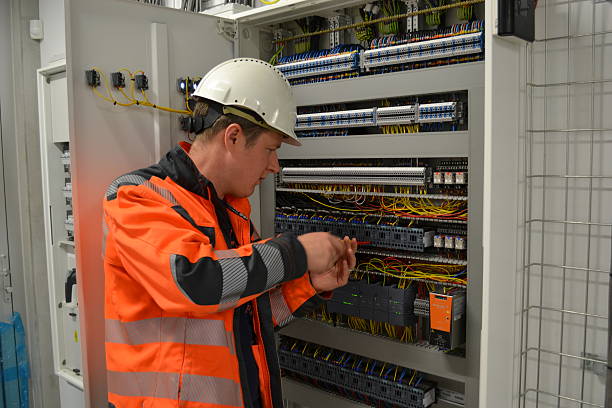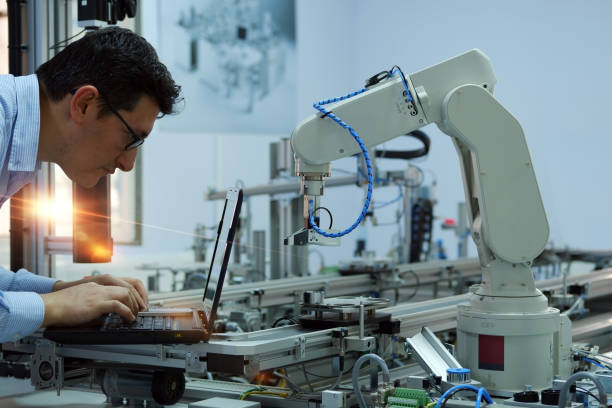Introduction
In the modern world of electrical engineering, industries are shifting towards smart, automated systems. One of the most important tools behind this change is PLC Automation. As an Electrical Power Engineer, understanding this technology helps you control machines, increase efficiency, and reduce human error in industrial processes.
What is PLC Automation?
PLC stands for Programmable Logic Controller. It is a small computer used in industries to control machines automatically.Simple Example:
Imagine a machine that sorts packages. A PLC can control sensors and motors so the machine knows where to move each package — without any human help.

Why is PLC Important in Electrical Engineering?
1. Industrial Automation
PLC systems are used in factories to automate everything from conveyor belts to packaging machines. Engineers design logic to control operations step by step.
2. Saves Time and Labor
Automation reduces the need for constant human monitoring. Once a PLC is programmed, it can do the job perfectly and repeat it all day.
3. Easy to Program
PLC programming uses logic that is simple and visual. Even beginners can understand and modify basic programs.
4. Reliable and Safe
PLCs are made to work in harsh environments. They are strong, safe, and can keep working even in heat, dust, and vibration.
5. Used in Many Fields
From power stations to solar farms, from elevators to water plants – PLCs are used everywhere. That’s why they are so important for electrical engineers.
Where Do Electrical Power Engineers Use PLCs?
- Power Generation Stations: Control of turbines, monitoring voltages.
- Solar Energy Systems: Automated tracking and load control.
- Factories and Production Lines: Packaging, labeling, mixing systems.
- Building Automation: Lights, fans, elevators, alarms, and more.
- Water and Sewage Plants: Pump and valve control, level sensing.

FAQs
What is PLC used for?
PLC is used to control machines and automate industrial tasks like moving, heating, mixing, or sorting items.
Do electrical engineers need to learn PLC?
Yes! It’s a core skill in power plants, solar installations, factories, and smart buildings.
Is PLC hard to learn?
Not at all. Most engineers find ladder logic easy to learn because it’s similar to real-world circuits.
What industries use PLC?
Almost all! Manufacturing, energy, food, packaging, water, and automotive industries all depend on PLC systems.









